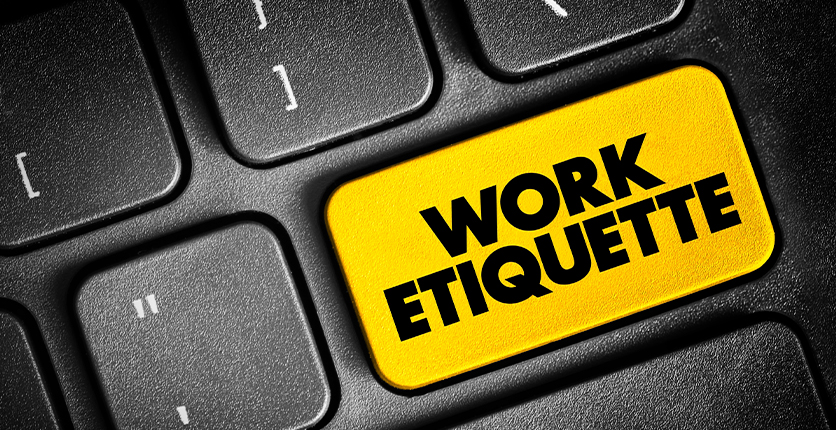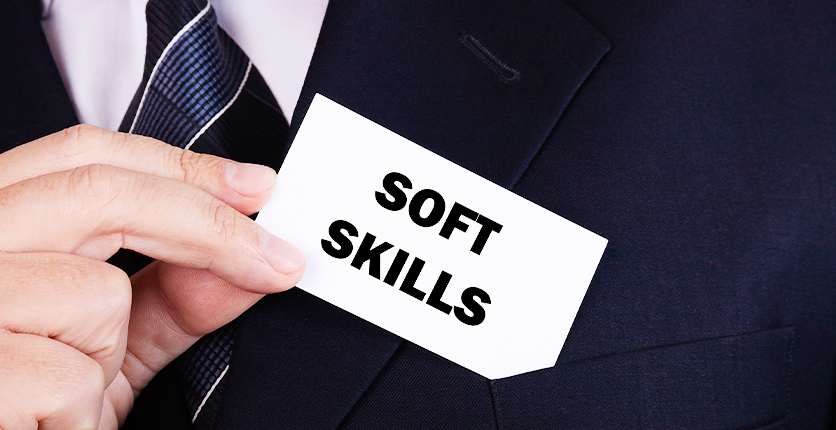If you’re just starting out in your career, you might be unsure about how to behave in the workplace. Sure, you know it’s important to be professional, but what does this mean, exactly, and why does it matter?
Acting professionally at work is important for a variety of reasons. First of all, your behaviour in the workplace can influence your short-term and long-term career success, affect your reputation within your organisation and industry, and influence your overall workplace environment.
When you follow the correct etiquette at work, you’re also more likely to improve communication and enjoy positive relationships with your colleagues. And when everyone respects and values one another, it’s easier for the work to get done.
“The right workplace etiquette allows us to build trust at work, strengthens our connections with our colleagues, supervisors and clients, and boosts our professional image,” says Teo Ser Lee, Founder and Principal Trainer at Protocol Academy.
“Conducting yourself well around the people you work with, which includes treating them with respect and kindness, can solidify your good reputation and make you more likeable, not to mention, create a more productive work environment. If you have a good professional relationship with your colleagues and bosses, your career is also more likely to thrive.”
Here, Ser Lee shares her best professional etiquette tips to help you stand out and excel at work.
1. Show respect, kindness and consideration towards others

This means valuing their ideas and opinions, not interrupting them during meetings, and putting them at ease in all situations, says Ser Lee. You should also avoid bad-mouthing your colleagues and bosses, passing judgement on them, and disrespecting authority.
Gossiping about others might make you feel like part of the “in” crowd at work and help you bond with certain colleagues, but it can also make you look like someone with no integrity who can’t be trusted. It also signals pettiness and immaturity.
Talking over others shows that you’re rude and insecure, while disrespecting the bosses might make you seem difficult or out of control.
Additionally, always remember to silence your phone during meetings, to show consideration for everyone in the room.
If you want to do well in your career, kindness and respect can go a long way.
Read more on how to improve on your soft skills like networking and speaking in front of people with confidence.
2. Don’t treat your colleagues like your friends

It’s fun to work with friends and even better when you become so close to your colleagues that you start to socialise with them.
But in the workplace, there should be clear boundaries between you and the colleagues you consider friends. This means not treating them with too much familiarity. So, talking about your personal lives and romantic relationships or using pet names and obscenities at work are out – save this behaviour for after you’ve left the office building. You should also avoid forming cliques with these people so as not to make other colleagues feel left out.
“It’s important to behave professionally around one another in order to create a conducive environment for business interaction and communication,” Ser Lee points out.
“When the line between friendship and working relationship becomes blurred, it’s difficult to be impartial when dealing with work issues.”
3. Dress professionally and pay attention to good grooming

Depending on the industry you’re in and your position in the company, you may need to put extra thought into what you wear to work. But, whatever your role, you should always show up looking clean, neat and well presented.
Ser Lee says that if you work in IT or Fintech, you may be allowed to wear casual clothes to the office or to meet clients. So, you can skip the tie and suit and stick to a well-pressed, collared tee or button-down shirt and casual pants. If you’re permitted to wear jeans, make sure they’re not distressed or torn. Sneakers or casual shoes are fine – they should be clean.
If you work in banking, law, accounting or another similar traditional industry, you may be required to wear a long-sleeved shirt, tie, tailored pants and dress shoes.
Personal hygiene says a lot about a person, too, Ser Lee adds. Keep your hair neat and your fingernails clean. Wear an appropriate cologne (but don’t overdo it) and pay attention to your choice of accessories, such as your watch, belt and jewellery.
Learn how to care for your skin and put your best face forward with these simple tips.
4. Always be on time

“When you’re punctual, you show others that you respect your time as well as theirs,” Ser Lee explains. “Punctuality makes us aware of the value of time and teaches us to be disciplined.”
If you’re always late to work, meetings or appointments, you may come across as someone who can’t manage his time and doesn’t respect others’ time. It also tells your colleagues that you don’t take your role and job responsibilities seriously and don’t care about how your actions might affect their work.
5. Follow basic email etiquette rules

There are many dos and don’ts when it comes to writing, sending and replying to work emails, says Ser Lee.
Generally, you’ll want to follow the five Cs:
Complete: Give sufficient information so that the recipient knows what you need. Include an appropriate and precise subject in the subject line.
Clear: Use precise language; avoid bombastic or ambiguous words. Keep your message simple so that it’s not misinterpreted.
Correct: Check your spelling, punctuation and grammar before sending the email.
Concise: Use short and easy-to-understand sentences and get to the point without confusing the recipient.
Courteous: Check your tone and level of formality. Remember that you’re communicating with a human being and not a machine. Avoid typing in all caps and sign off politely.
6. Be reliable

If you say you will do something at a certain time, don’t go back on your word. Being reliable means that you can be counted on to keep your promises and complete tasks in a timely manner. The more reliable you come across to others, the more trust and respect you will earn, says Ser Lee.
Being reliable improves your work relationships and team’s performance; it’s also a good way to conduct yourself professionally as it demonstrates consistency and competency, time management skills, honesty and integrity, and a respect for your as well as others’ time.
Here’s how to brush up on your soft skills like communication and emotional intelligence.
Want more articles like this, and other lifestyle content right in your inbox? Download the new SAFRA mobile app and opt in for the eNSman Newsletter – you don’t need to be a SAFRA member to subscribe – and never miss another story!







